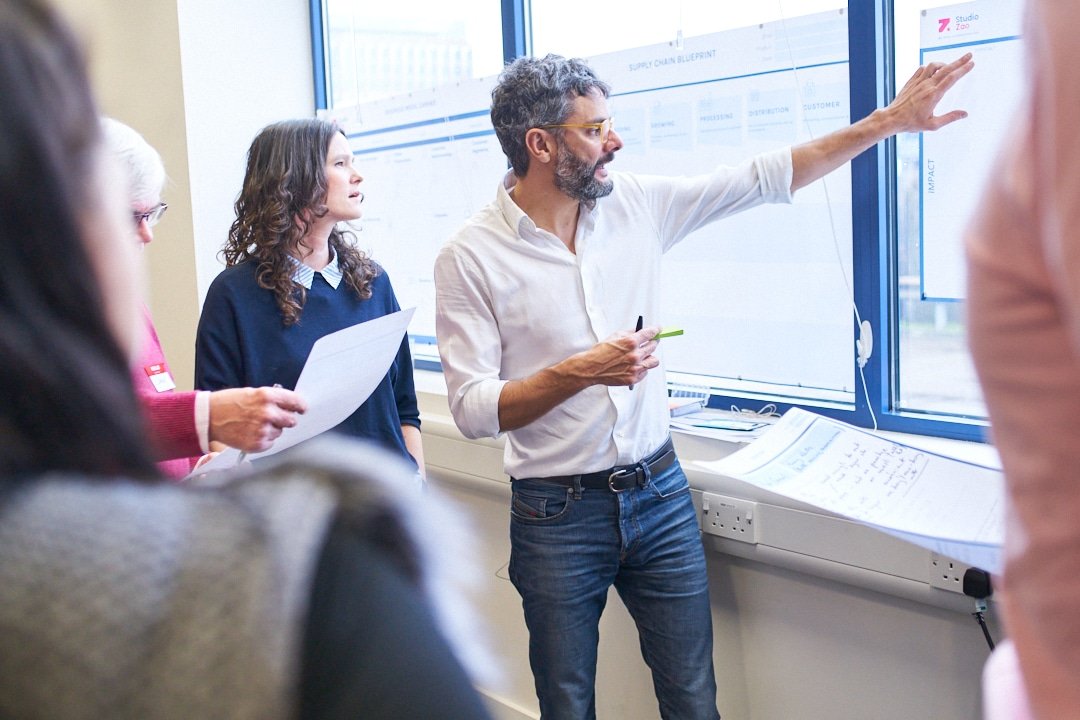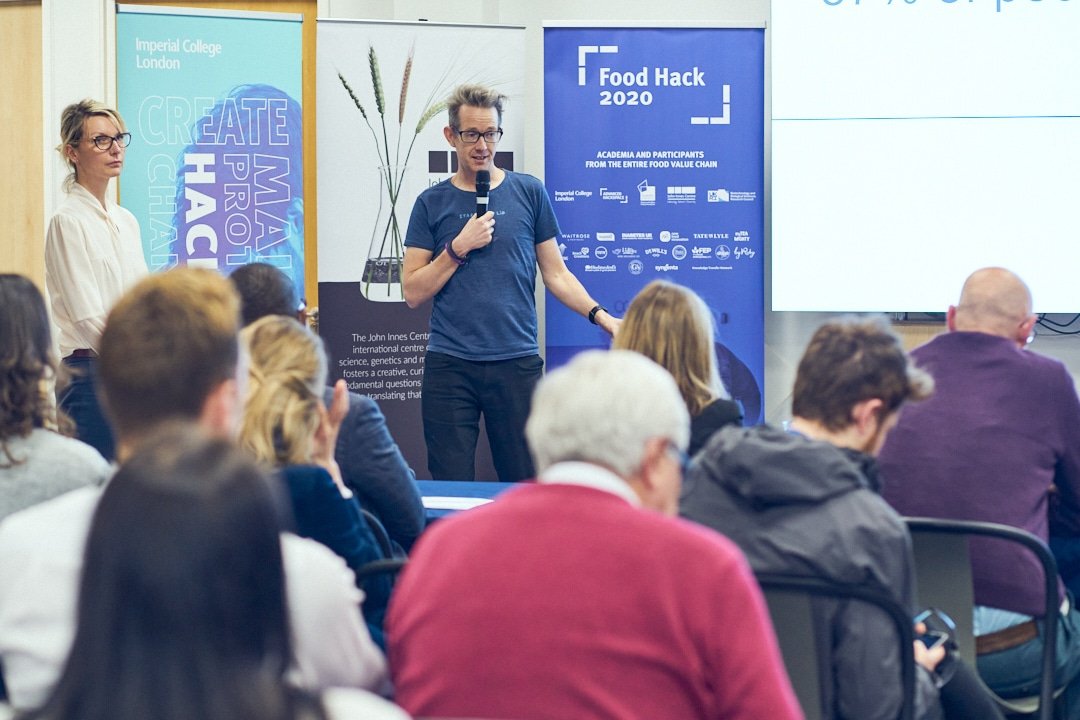Accelerated Academic Research Translation in the Food Sector with Imperial College London
We designed, organised and delivered a two-day Innovation Hack to rapidly translate UKRI and BBSRC-funded research into the food system to improve diabetes and cardiovascular disease prevention.
Background
Imperial College London’s Centre for Translational Nutrition and Food Research, and Quadram Institute have been awarded a UKRI/BBSRC Seeding Award Fund to rapidly translate research outcomes into the food system. The research – which had also included John Innes Centre and was published in Nature Food, had shown how a naturally-occurring genetic mutation in pea, leading to different type of starch, could impact on energy and glucose homeostasis in humans, and contribute to the prevention of diabetes and cardiovascular disease..
Brief
The clients asked us to design and run a Hack. The objective was to engage SMEs in the food sector and demonstrate how collaboration across the value chain could contribute to BBSRC-funded research translation. The ultimate objective was to access follow-on funding to demonstrate the commercial viability of novel food products..
Concept proposals would have to be produced during the Hack responding to challenges in growing and processing variant peas, and then to design and launch desirable and affordable food propositions that consumers want to eat three times a day, and are able to prevent diabetes and cardiovascular diseases.
IMPACT
With a very tight deadline of just 60 days of preparation due to funding requirements, we adopted strict management of the preparation process:
We organised workshops with the clients to define challenges, identify partner SMEs — across the entire food value chain — and fine-tune the messaging which will be used to prepare material (e.g. website and emails) to recruit participants and to design the Hack
We led food industry engagement to invite participants, consumers, mentors, speakers and judges
We created challenge-based teams based on confirmed participants
We designed Hack facilitation material, including review of keynote speeches and preparation of workshop material, templates and facilitation guide
We have planned logistics, coordinated participants, speakers and judges.
On Wednesday 26th February we kicked off Food Hack 2020, 2.5-day Hack aimed at guiding challenge-based teams through a process for ideating concepts able to deliver impact from BBSRC-funded research, and prevent diabetes and cardiovascular diseases.
A team of three venture builders and facilitators coordinated concept ideation and validation with industry mentors, rapid iteration, roadmap planning across the value chain and pitch preparation.
On the last day, we organised a final showcase with public pitches of concepts.
Outcomes
As a result of our food industry engagement, we have brought together 24 organisations from the entire food value chain:
Supermarket chain Waitrose and Partners
Multinational beverages, sauces and ingredients producer Tate & Lyle
Premium nutritional supplement brand Nuzest
Leading charity Diabetes UK
Energy drink producer Tenzing
Natural great tasting condiment producer Dr Wills
Drink startup My tea is mighty
Snack manufacturer Snack Creations
Food marketing and research agency MMR
Snack startup Liobites
Pasta manufacturer Pasta Foods
Food enterprise zone Food Enterprise Park
Frozen meal brand By Ruby
Pulse and grain pioneer manufacturer Hodmedod’s
Growers G’s Growers
Breeder Syngenta
Food consultancy New food Innovation
Three teams have created new food concept proposals focusing on three opportunities: on the go, fortified staples and curated meals.
We are now supporting the client to bring these concepts forward into a follow-on funding round to launch the propositions on the market.
What our Clients Say
“I enjoyed the diverse experts brought together, the structure of the day, enthusiasm, and mentors and group guides support. It was a liberating process to be in such an open and innovative environment where there were no wrong answers and the quick pace was the key.”
Daniel R.
Agrochemicals and Seeds Producer
Have any thoughts or questions?










